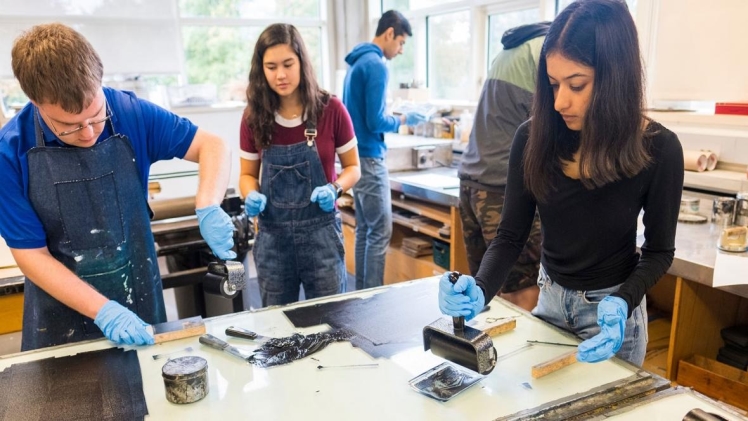From the earliest tools crafted by our ancestors to the sophisticated devices we rely on today, technology has played an integral role in shaping the human experience. It has revolutionized our lives, transforming the way we communicate, work, learn, and interact with the world around us.
The Driving Force of Human Progress
Technology serves as the driving force of human progress, enabling us to overcome challenges, explore new frontiers, and enhance our understanding of the universe. It has propelled us from the hunter-gatherer era to the digital age, marking a remarkable journey of innovation and advancement.
Communication: Bridging Distances and Connecting the World
Technology has transformed communication, enabling us to connect with others across vast distances in real time. The advent of the telephone, the internet, and social media platforms has revolutionized the way we share information, maintain relationships, and engage with the global community.
Work: Automation and Efficiency
Technological advancements have revolutionized the workplace, automating tasks, increasing efficiency, and creating new opportunities. From the assembly line to artificial intelligence, technology has transformed the way we work, enabling us to produce more, innovate faster, and extend our reach beyond physical limitations.
Education: Access to Knowledge and Personalized Learning
Technology has democratized access to knowledge, providing individuals with unprecedented opportunities for learning and personal growth. Online courses, educational apps, and digital libraries have opened doors to diverse fields of study, empowering individuals to pursue lifelong learning and acquire new skills.
Healthcare: Lifesaving Innovations and Improved Outcomes
Technology has revolutionized healthcare, leading to lifesaving innovations and improved patient outcomes. Medical advancements, diagnostic tools, and surgical techniques have extended lifespans, enhanced treatment options, and provided hope for individuals facing debilitating conditions.
The Challenges and Ethical Considerations
Despite the immense benefits it brings, technology also presents challenges that need careful consideration. The rapid pace of technological change can lead to job displacement and concerns about the future of work. The increasing reliance on technology raises concerns about privacy, data security, and the potential for misuse of personal information.
Ethical considerations arise in areas such as artificial intelligence, gene editing, and the use of technology in warfare. It is crucial to establish ethical guidelines and regulations to ensure that technological advancements are used responsibly and for the betterment of humanity.
The Future of Technology: Embracing Change and Shaping the World
As we step into the future, technology is poised to continue its transformative journey, shaping our lives in ways we can only begin to imagine. Artificial intelligence, virtual reality, augmented reality, and biotechnology hold the potential to revolutionize industries, address global challenges, and enhance our understanding of the universe.
The responsibility lies with us to harness the power of technology for the benefit of humanity, ensuring that it serves as a tool for progress, not a source of division or harm. We must prioritize ethical considerations, foster collaboration, and embrace lifelong learning to navigate the ever-evolving landscape of technology and shape a future that is both innovative and equitable.
Conclusion
Technology, a dynamic and ever-present force in our lives, has shaped our past, defines our present, and will continue to mold our future. It is a double-edged sword, capable of immense good and immense harm. It is our responsibility to steer its course, to harness its power for the betterment of humanity, and to ensure that it remains a force for progress, not destruction.





